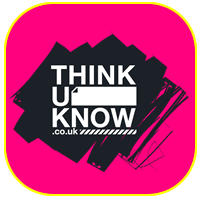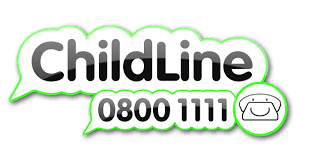Parent Online Safety Information
There is support available to keep your child safe online. Below are some useful links to help parents and carers:
- Thinkyouknow (advice from the National Crime Agency to stay safe online)
- Internet matters (support for parents and carers to keep their children safe online)
- Parent info (support for parents and carers to keep their children safe online)
- LGfL (support for parents and carers to keep their children safe online)
- Net-aware (support for parents and carers from the NSPCC)
- Let’s Talk About It (support for parents and carers to keep children safe from online radicalisation)
- UK Safer Internet Centre (tips, advice, guides)
Social media | NSPCC - Social media, find out how to help children stay safe on social media.
Teaching Your Child about Internet & Online Safety | NSPCC - Talking to your child about online safety, advice on how to start the conversation and get support if you're worried.
Reporting online safety concerns | NSPCC - Reporting online safety concerns, what to do if you're worried about something a child or young person has experienced online.
Information from Greater Manchester Police (GMP) General safety tips on how to keep Children safe online.
In addition there are some facts that you may find of interest or use. Please take time to have a read of them, even if you are not a parent you may find them of use in your role.
# Safety Tip 1
Ask your child to show you their favourite things to do online and show an interest in what they do.
Talk to your child about the sites they visit, the friends they have, how they communicate with these friends and the information they share.
#Safety Tip 2
Set rules and boundaries. This will depend on your child’s age but you may wish to consider the amount of time they spend online,
when they can go online, websites they can visit, the friends they have, the sharing of images and videos and how to treat people online.
Not to post anything online that you wouldn’t say face to face. You may also wish to consider using computers and devices in shared family rooms and not allowing their use at bed time.
#Safety Tip 3
Online games, movies and social network sites often have minimum age restrictions. Age limits are there to keep children safe.
You shouldn't feel pressurised into letting your child sign up to websites that you feel they are too young for or are against age restrictions.
# Safety Tip 4
Set parental controls on devices to filter, restrict and monitor content. Ensure the device has good anti-virus software.
Internet service providers provide controls to help filter and restrict content.
Laptops , phones, tablets, games consoles and other devices that connect to the internet have settings to activate parental controls.
All children's passwords should be shared with their parents.
# Safety Tip 5
Check Privacy settings of online accounts. Make sure they are set at the highest level i.e.. Facebook, Instagram etc.
# Safety Tip 6
Talk to your child about what to do if they see inappropriate content or are contacted by someone that worries them,
OR if they know this is happening to a friend.
Advise your children to tell someone that they trust, for example a parent, carer, relative or a teacher.
Stress to them that they will not be in trouble.
- CEOP estimate that there are 20,000 people on line at any one time looking to talk to children
- Many parents have no idea what their children’s passwords are for their devices, this effectively means that parents have no way of checking who they are talking to, what they are accessing or that they are safe online.
- Lots of young people are online late at night without their parents knowledge.
- Any social media App or Game that has the facility to message, chat or share images with others (including strangers) is potentially dangerous for children. Extra vigilance and supervision is required.
- Some games allow for single player use only which you may be a safer option for children i.e. Minecraft
- Predators strike up conversations with children on social media platforms and then suggest that the chat moves to a different App to allow for more private 1 to 1 conversations. (i.e. KIK)
- Most popular Games and Apps that children are accessing together with recommended age restrictions OMEGLE (13), KIK (13), MUSICAL.LY (13), SNAPCHAT (13), ASK FM (13), ROBLOX (7), FORTNITE (12) YUBO (13)
- Often PEGI age ratings do not take into consideration the chat feature (which is what effectively makes the game or app potentially dangerous)
- For further advice regarding Social Media Apps, and Games please visit ITSNOTOKAY, or THINKUKNOW, or NSPCC NetAware.
You can download the NSPCC NetAware App that provides an instant overview of all the most popular Apps and lists the dangers associated with each. It also has a useful news update page that highlights current issues and risks.
Share the 'BE SMART' rules and websites below with your children to ensure they can surf the internet safely and confidently
Follow the rules below to stay safe and Be "SMART" when using the internet.
1.NEVER give out personal information.
2.Tell someone if anything makes you feel uncomfortable
3.NEVER agree to meet anyone.
4.NEVER send a picture to anyone
5.If someone sends anything mean or upsetting tell an adult immediately.
6.Check before you download anything.
7.Best friends NEVER ask for passwords. (keep them private)
8.Share the internet with your parents and carers you can have great fun TOGETHER
'Parents help your child remain safe', click the links below to share internet safety with your children.
Below are some other links you may find useful connected with e-safety
(Information and advice on using safety tools on social networks and Online Services)
http://www.saferinternet.org.uk/need-help ( Information about how to help a child or give advice)
http://www.childnet.com/parents-and-carers/what-do-I-need-to-know (keeing young children safe)
http://www.saferinternet.org.uk/advice-and-resources/parents-and-carers/parents-guide-to-technology (Parents Guide to Technology)
http://www.bbc.co.uk/cbbc/topics/stay-safe
http://www.nspcc.org.uk/shareaware
https://www.saferinternet.org.uk/safer-internet-day/2020
.jpg)

